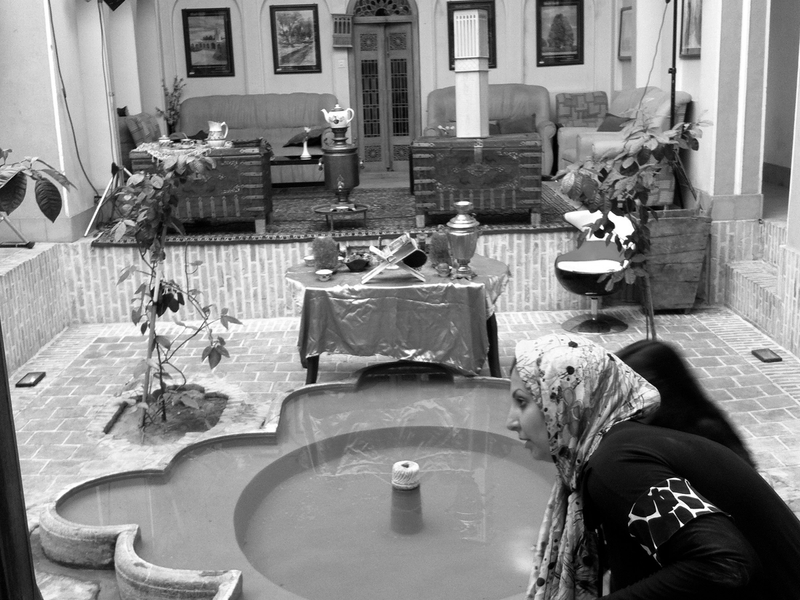→ Invisible Practices: Learning from the East
Yara Sharif and Nasser Golzari
Learning from the East, with its unique social practices and modes of living that start from home and expand to include the street and the neighborhood, can be impactful when thinking about responses to scarcity. The culture of sharing embedded in daily rituals is the opposite of the dominant culture of consumption and the commodification of resources at the expense of our ecology.
The power of everyday practices, which celebrate local skills, materials, and climate, has been a common characteristic of the East and the Global South. Collective cooking, having a siesta in a hot climate, taking off shoes, washing the face, and hanging up washing are all simple, and indeed invisible, means of working in harmony with nature. As modest as they may appear, these context-driven sociocultural practices have been very impactful and are indeed key to consider when thinking about scarcity and the planet. They set the basis for what recycling, reusing, and refusing can achieve. They stand in contrast to consumption, waste, and the exploitation of land and resources under the guise of capitalism.
The daily rituals established in the East and the South in response to scarcity—and at times, urgency—are becoming more common within smaller communities, neighborhoods, and even streets in the West. The return to the culture of exchange, bartering, and rejecting the culture of waste are slowly making their way back to our neighborhoods. These are attempts to break away from the culture of individualism and an obsession with comfort at the expense of the collective.
The need to radically rethink our way of living, where the relationships among architecture, ecology, and social justice are interlinked, is far more urgent than before. However, there won’t be an impactful response to scarcity if the exploitation of materials, land, and resources continues by the Global North.
Nature, culture, and everyday practices are inseparable. How then can environmental consciousness, morality, and social equality be separated? If we are to heal the environment, we need to understand the implications of our actions on the collective. We need to address both social ecology and the physical environment.
Yara Sharif and Nasser Golzari are practicing architects and academics interested in using design as a tool to rethink contested landscapes. Their work runs parallel between their practice, NG Architects in London, and the design studio at the University of Westminster. They co-founded the Palestine Regeneration Team (PART), a design-led research group that aims to search for creative and responsive spatial possibilities in a fragmented landscape through speculative and live projects. They call for alternative architectural practices that challenge the dominant Western approach. They are inspired by the daily rituals, narratives, and passive environmental practices of the Global South and aim, through research, design, and pedagogical practice, to reclaim and celebrate what they call "the invisible other." Their work intersects to disrupt colonial power with its supremacy and hierarchy of knowledge production
